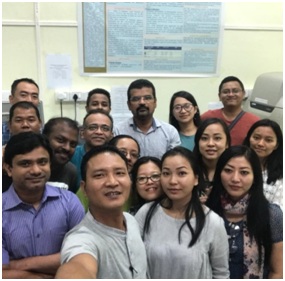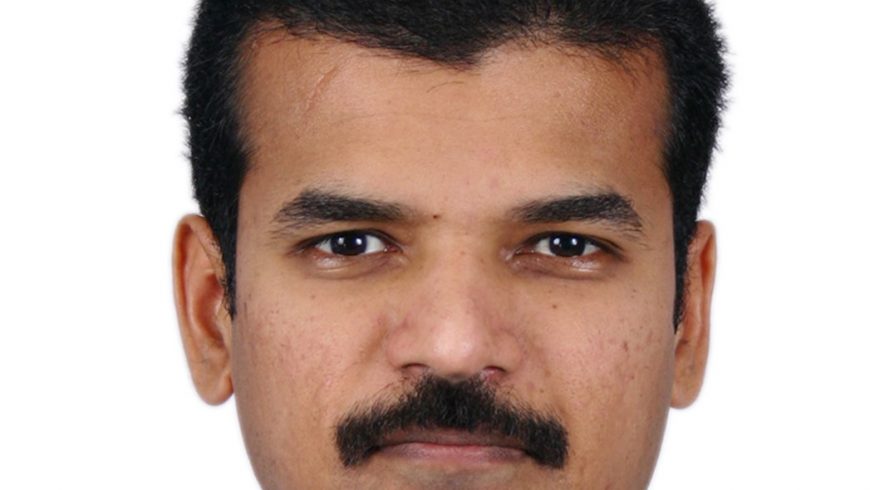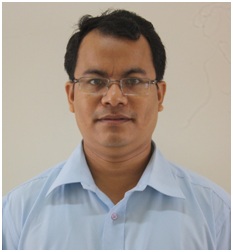****½3votes
[With the objective of encouraging the talented young scientist of the North Eastern Region who have brought glory to the region by receiving coveted awards/grants at the national level and to motivate the students to follow their path in their quest for excellence in research in the area of Biology and Biotechnology, this section has been initiated. In every issue, we propose to bring to you the research highlights of one such scientist along with his/her brief biodata]
Born in Pollachi (a small town in Coimbatore District Tamil Nadu), he did his schooling till Class X under CBSE Board and further in Tamil Nadu State Board up to Higher Secondary in Chennai. He pursued B.Sc. Zoology in Loyola College, Chennai which gave a very strong foundation for Academic and Research motivation. The Master’s and Ph.D programs at Bharathiar University, Coimbatore also gave an orientation towards research and taught him the values of self-learning and hard work. He completed Ph.D. under the guidance of Prof. K. Murugan in the year 1998. He worked in the Coffee Board, Ministry of Commerce in the Extension Department for 18 months and and subsequently, worked as a Lecturer in Biochemistry at PGP College, Namakkal. He continued his service career as a Lecturer in Biotechnology in Karpagam College, Coimbatore and later in NGM College, Pollachi, Tamil Nadu.
He did his Post-Doctoral research in RNAi technology at Sun Yat-sen University, China during 2005-2006 and later joined as a Reader in the Department of Biotechnology, Mizoram University in January 2007, and currently continuing as a Professor in the same Department. He contributed immensely towards establishment of the Biotechnology Department in Mizoram University and has been interacting with the faculty members and the teaching fraternity all over the globe to explore the collaborations in research and manpower training.
Current research
His main focus of research is on Human Disease Genetics, Molecular Epidemiology and Microbial Diseases in the state of Mizoram with an aim to contribute to early diagnosis as well as prognosis. Establishment of Bioinformatics pipeline for NGS data analysis of metagenomes and whole genomes is also one of the focus areas of his research team. The research group is working on genetic predisposition of Mizo population to Gastric and Breast Cancers as well as Diabetes by identifying the gene markers using the Sanger as well as Next Generation Sequencing platforms. Major DBT sponsored projects are being carried out in collaboration with NIBMG, Kalyani and ACTREC, Mumbai.
Mizoram state is considered as the “Cancer Capital” of India. A focused investigation has not been done on genetic susceptibility of Mizo population with reference to human genetics and cancer epidemiology. Cancer is a multifactorial disorder and most of the cancer cases seem to be a result of sporadic mutations occurring due to spontaneous genetic events, environmental events or interaction between genetic and environmental factors. Very less research has been done on the dietary habits of the Mizo people. Gastric cancer in Mizoram has been shown to have a positive association with food habits, i.e. consumption of smoked, dried and salted fish and meat. Data published by his group also showed that presence of Helicobacter pylori with CagA genotype showed significant individual effect with GSTT1 polymorphisms as well as strong synergistic effect among each other in gastric cancer risk and validated the results of gene–environment interactions. Mitochondrial microsatellite instability was also a major factor for progression of gastric tumor and it was significantly associated with H. pylori infection with cagA positive or negative and smoked meat consumption in Mizo population.The group has shown that analysis of mitochondrial MSI and Cytochrome oxidase I as well as D-loop alterations might help to identify patients at high risk for gastric cancer early diagnosis.
In Mizoram, a very high tobacco smoking rate and a peculiar habit of using “tuibur” [tobacco smoke–infused water], habit of chewing betel quid containing fresh betel nut, and slaked lime wrapped in betel leaf is also observed . The group discovered some novel mutations and polymorphisms in mitochondrial genome and TP53 (Tumor Protein), CDH1 (E-Cadherin) genesassociated with gastric cancer in Mizo population. Extra intake of fermented fat and smoked meat consumption were also found to be potential confounders for gastric cancer risk in relation to GSTM1/T1 null genotyping and GSTT1 null genotyping. These molecular pathology mechanisms can be applied in routine diagnostic procedures, disease monitoring and preventive measures.
Using high throughput Illumina sequencing, the group has also investigated the less known bacterial taxa composition and functional responses to alterations in bacterial community due to Jhum cultivation and in natural forest cum cave ecosystems in the eastern Himalayan biodiversity hotspot region. DNA barcoding and molecular phylogenetic analysis of different taxa are also being carried out by the research team.
The Department of Biotechnology (DBT), Govt. of India, New Delhi sponsored Advanced State Biotech Hub and Bioinformatics Infrastructure Facility (BIF) under the BTISNet program have been performing well in terms of human resource training, infrastructure development and initiation of research in diverse areas. The DBT, New Delhi has sanctioned an Unit of Excellence for Gastric Cancer research as well as awarded overseas Associateship to Dr. N. Senthil Kumar which has greatly strengthened the research programs of his team and his Department.





